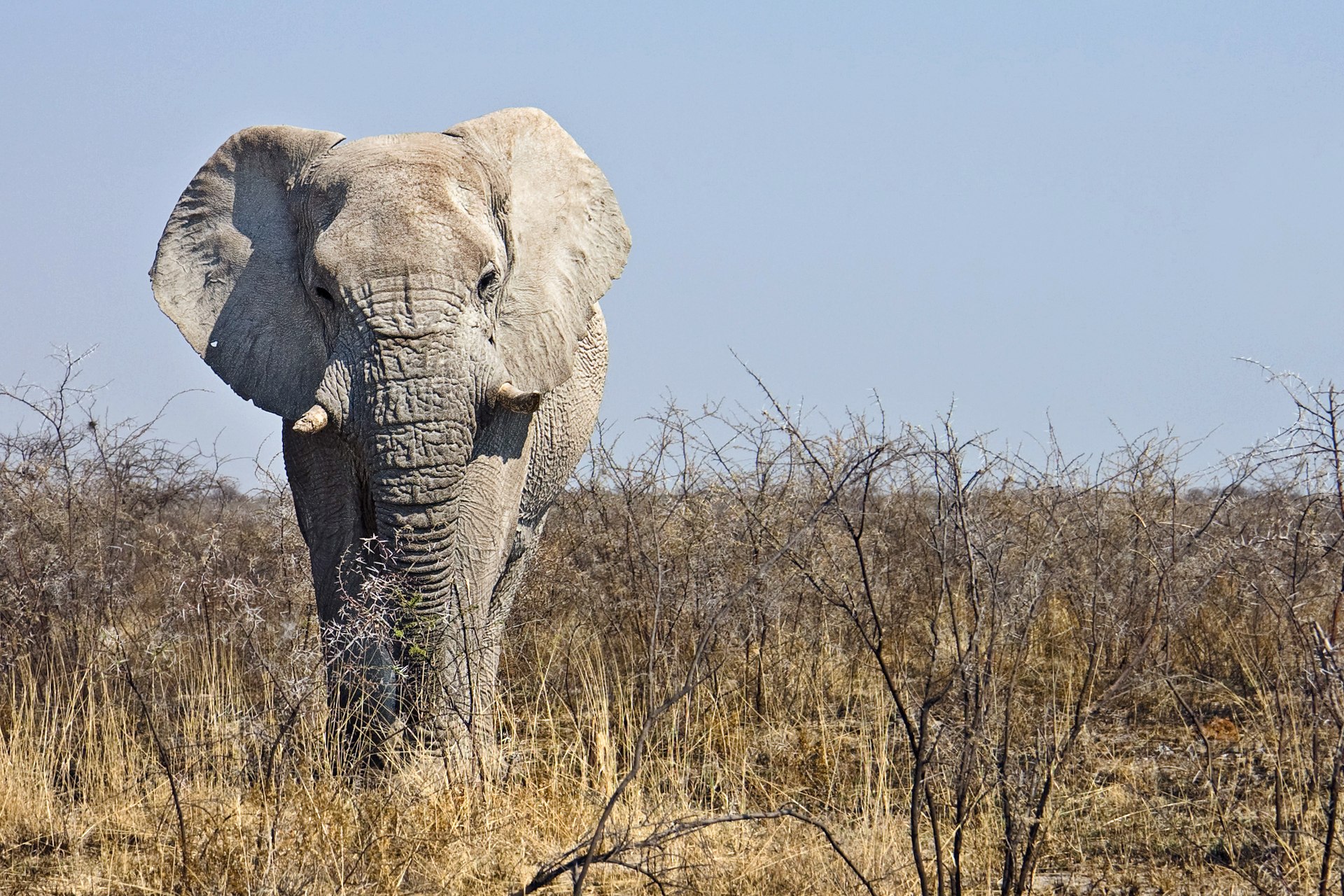 |
| An African bush elephant in Tanzania |
The illegal ivory trade has been decimating Africa's elephants for several years. Despite the efforts being implemented to prevent further loss of elephants to the trade, the continent's elephants continue to fall victim to poachers. Now, several African countries containing elephants have divided themselves into two groups regarding elephant conservation: one group consists of countries containing some the world's largest elephant populations that are pushing for lax restrictions on the ivory trade and another group of countries calling for more control is the best way to mitigate the illegal poaching of elephants for their tusks. The countries arguing that commerce will help them pay to safeguard elephants are the ones in southern Africa while those countries who believe that even restricted ivory trade incites demand and encourages illegal killing of elephants include Gabon and Kenya. The conflicting proposals were released by the office of the Convention on International Trade in Endangered Species (CITES). They will be discussed during a CITES meeting scheduled to take place in Colombo from May 23 to June 3 this year. The last meeting was held in Johannesburg in 2016, in which CITES refused appeals to loosen an international ban on the ivory trade that has been in place for decades. According to WWF wildlife trade expert Colman O'Criodain, in a telephone interview with the Associated Press, he indicated that the meeting in Colombo should focus on administering anti-trafficking measurements instead of engaging in pointless debates about whether to trade legally.
 |
| An African forest elephant in Gabon's Invido National Park |
A southern African proposal stated that Botswana, Namibia, South Africa, and Zimbabwe have roughly 256,000 elephants which is more than half of the total estimate for Africa. It indicated that protecting elephants as human populations escalate and wildlife habitats reduce comes at a big cost and proposed that jointly controlled trade in government-owned ivory stocks will help relieve that stress. The proposal even criticized CITES as being an "inhibitor and not an enabler of progress." A similar proposal was made by Zambia, which stated that elephants are competing with people in rural areas for resources and that local people would be more lenient if they see "economic returns earned from the sustainable use of elephant." The debate even touched on jurisdiction issues. For example, countries like Gabon, whose elephants have been massively poached, and Nigeria, which has a very small number, want elephants in southern Africa to be subject to tighter restrictions. Southern African countries, on the other hand, believe that countries with their own problems, such as weak law enforcement, should not dictate policy on others. A columnist from Zimbabwe named Emmanuel Koro wrote in The Herald that it was time for countries in southern Africa to act in their "national interests" and contemplate declining to agree with CITES-supported bans on the ivory trade as well as rhino horn. He even suggested that Japan's recent decision to withdraw from the International Whaling Commission could serve as a guide.
 |
| An African bush elephant in Namibia's Etosha National Park |
It really disturbs me that African countries are engaged in an absurd debate on how to protect their elephants from the ivory trade. On one hand, southern African countries are demanding for lesser restrictions on the ivory trade and on the other hand, countries in East, Central, and West Africa are calling for more restriction on the ivory trade. How can these countries, whose elephants constitute a significant part of the tourist industry and are part of their natural heritages, become embroiled in such arguments while elephants continue to fall victim to the ivory trade? I highly urge the governments of various African countries to please call off this ridiculous debate regarding Africa's elephant conservation. Instead of debating, they should jointly work together in order to safeguard one another's elephant population and should maintain strong ties with CITES. If Africa remains divided over the issue on the ivory trade, then elephant populations will be sure to dwindle on a large-scale. The bottom line is simple: Elephants must be protected and the ivory trade should NEVER under any circumstances be legalized; it must be ended by any means necessary! Same should apply to the trade in rhino horns. Both of these animals have been suffering and continue to suffer by the ongoing demand of ivory and rhino horns. The time has come to step up efforts in protecting these animals from poaching and the illegal wildlife trade without any form of delay.
View article here
No comments:
Post a Comment